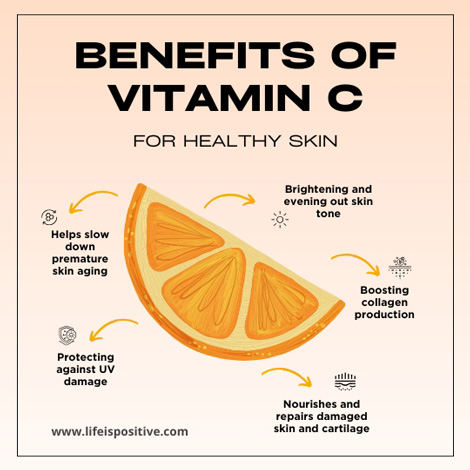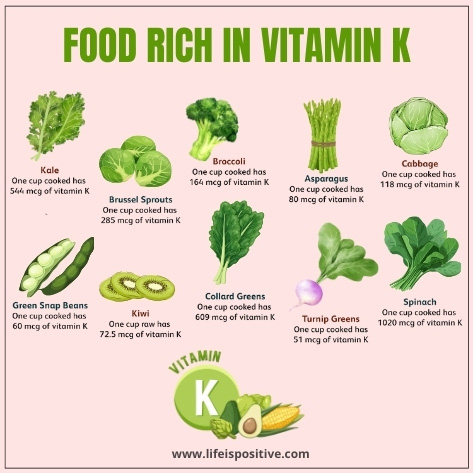|
Getting your Trinity Audio player ready...
|
Vitamins are more than just buzzwords on your supplement bottles—they’re the unsung heroes of your health. The 10 importance of vitamins go beyond just keeping your body running; they fuel your energy, support your immune system, and even boost your skin’s glow.
Whether you’re looking to improve your vision, stay sharp, or maintain strong bones, these powerful nutrients have your back. We are exploring the 10 importance of vitamins and why making them a priority in your daily routine can help you feel your best.
Ready to take your health to the next level?
10 Importance of Vitamins
Each vitamin is a powerhouse of benefits, contributing to various aspects of your health.
1. Vitamin A (Retinol)
Vitamin A, also known as retinol, is a fat-soluble vitamin that plays a crucial role in maintaining overall health. It’s vital for good vision, especially in low light, and supports night vision.
Beyond eye health, Vitamin A helps maintain healthy skin and mucous membranes by regulating skin cell production, which can improve texture and reduce conditions like acne. It also speeds up wound healing by promoting tissue repair.
Additionally, Vitamin A boosts the immune system by enhancing white blood cell function and acts as an antioxidant, protecting cells from damage and potentially reducing the risk of chronic diseases.
2. Vitamin B Complex (B1, B2, B3, B5, B6, B7, B9, B12)
The Vitamin B Complex, comprising eight distinct B vitamins (B1, B2, B3, B5, B6, B7, B9, and B12), is a powerhouse of essential nutrients that perform a myriad of crucial functions in the body.
• B1 (Thiamine): This vitamin converts food into energy, supports healthy nerves, and aids muscle function. It’s essential for overall metabolism.
• B2 (Riboflavin): Riboflavin is crucial for energy production, skin health, and maintaining healthy vision. It acts as an antioxidant, protecting cells from damage.
• B3 (Niacin): Niacin plays a pivotal role in DNA repair, cell health, and hormone production. It helps regulate cholesterol levels and supports digestive health.
• B5 (Pantothenic Acid): Pantothenic Acid is vital for metabolizing fats, carbohydrates, and proteins into energy. It also supports skin health and wound healing.
• B6 (Pyridoxine): Pyridoxine is essential for brain development, cognitive function, and maintaining a healthy nervous system. It aids in red blood cell formation and hormone regulation.
• B7 (Biotin): Biotin is known for promoting healthy hair, skin, and nails. It plays a role in fatty acid synthesis and metabolism.
• B9 (Folate): Folate is critical for cell division, DNA synthesis, and tissue growth. It’s especially important during pregnancy to prevent neural tube defects in the developing fetus.
• B12 (Cobalamin): Cobalamin supports nerve function, red blood cell formation, and the metabolism of fats, carbohydrates, and proteins. It is crucial for maintaining overall energy levels.
The B-complex vitamins are vital for energy production, maintaining a healthy nervous system, supporting skin and hair health, and contributing to overall well-being.
A balanced diet that includes a variety of foods like whole grains, lean proteins, and fruits and vegetables ensures an adequate intake of these essential nutrients.
3. Vitamin C (Ascorbic Acid)
Vitamin C, or ascorbic acid, is a water-soluble vitamin known for its vital role in overall health. It’s famous for boosting the immune system by acting as a powerful antioxidant, protecting the body from harmful free radicals.
This helps prevent aging and disease while strengthening the immune response to infections. Vitamin C also supports skin health by aiding in collagen production, improving skin elasticity, and speeding up wound healing.
Additionally, it enhances the absorption of non-heme iron from plant-based foods, benefiting those on vegetarian or vegan diets. Including citrus fruits, berries, and leafy greens can provide these essential benefits.
Read: 7 Expert-Backed Tips on How to Boost Your Immunity
4. Vitamin D (Calciferol)
Vitamin D, or calciferol, is often called the “sunshine vitamin” due to its production in the skin when exposed to sunlight. This fat-soluble vitamin is essential for maintaining good health. Its most prominent role is supporting bone health by aiding calcium absorption, which keeps bones and teeth strong.
A lack of Vitamin D can result in conditions like rickets in children or osteoporosis in adults. Beyond bones, it boosts the immune system, regulates cell growth, and supports cardiovascular health.
Emerging research also links Vitamin D to mood regulation, potentially aiding in the fight against depression and seasonal affective disorder.
5. Vitamin E (Tocopherol)
Vitamin E, or tocopherol, is a fat-soluble vitamin known for its powerful antioxidant properties, which play a crucial role in overall health. As an antioxidant, it helps protect cells from damage caused by free radicals, lowering the risk of chronic diseases and slowing the aging process.
This makes Vitamin E a key player in heart disease and cancer prevention. It also promotes skin health by moisturizing and nourishing the skin, potentially reducing signs of aging like wrinkles.
Additionally, Vitamin E boosts the immune system, supports red blood cell formation, and may enhance eye and cognitive function.
6. Vitamin K (Phylloquinone)
Vitamin K, or phylloquinone, is a fat-soluble vitamin essential for blood clotting and bone health. It plays a crucial role in activating proteins necessary for proper clotting, preventing excessive bleeding from minor injuries. But Vitamin K’s benefits extend beyond clotting.
It helps synthesize osteocalcin, a protein essential for bone mineralization, supporting strong bones and potentially reducing the risk of osteoporosis.
Vitamin K comes in two forms: K1, found in leafy greens, and K2, produced by gut bacteria. K1 is key for clotting, while K2 supports bone and cardiovascular health. A diet rich in greens like spinach and kale ensures you’re getting enough Vitamin K.
7. Vitamin Biotin (B7)
Biotin, also known as Vitamin B7, is a water-soluble B vitamin that plays a crucial role in energy metabolism and the maintenance of healthy hair, skin, and nails. It helps break down fats, carbohydrates, and proteins, providing the body with the energy it needs to stay active and fight fatigue.
Biotin also supports keratin production, which is vital for strong hair, clear skin, and healthy nails. Additionally, it contributes to nerve health by aiding myelin production, which protects nerve fibers.
While biotin deficiency is rare, it can cause hair loss, skin issues, and fatigue. Incorporate biotin-rich foods like eggs, nuts, and dairy into your diet.
8. Vitamin Folate (B9)
Folate, or Vitamin B9, is a water-soluble vitamin crucial for health, particularly in cell division, DNA synthesis, and tissue growth. It plays a vital role in DNA replication and repair, supporting the formation of new cells and genetic material.
This is especially important during rapid growth phases like pregnancy and childhood. Folate is essential in preventing neural tube defects in developing fetuses, ensuring proper brain and spinal cord development. Pregnant women are often advised to take folic acid supplements.
Additionally, folate supports red blood cell formation and immune function. Foods like leafy greens, legumes, and citrus fruits help meet folate needs.
Read: Unlock the Nutritional Value of Blueberries
9. Vitamin Cobalamin (B12)
Vitamin B12, also known as cobalamin, is a water-soluble vitamin essential for maintaining nerve health and producing red blood cells. It plays a crucial role in synthesizing hemoglobin, which helps transport oxygen throughout the body.
A lack of B12 can lead to anemia, fatigue, and neurological issues like tingling or memory problems due to its importance in maintaining the myelin sheath around nerves. Vitamin B12 also aids in DNA synthesis and helps lower the risk of heart disease by converting homocysteine into methionine.
Since B12 is primarily found in animal products, vegetarians and vegans should consider fortified foods or supplements.
10. Vitamin B5 (Pantothenic Acid)
Vitamin B5, or Pantothenic Acid, is a water-soluble vitamin that plays a key role in energy metabolism and overall health. It helps convert carbohydrates, fats, and proteins into energy, keeping you energized and alert.
B5 also contributes to skin health by forming a protective barrier that locks in moisture, preventing dryness. It’s commonly found in skincare products for its hydrating properties. Additionally, Vitamin B5 aids in synthesizing fatty acids, supporting hormone production and promoting healthy hair growth.
While deficiency is rare, symptoms like fatigue and skin issues may occur. Include foods like meat, dairy, and whole grains to boost your B5 intake.
Final Thoughts: 10 Importance of Vitamins
These 10 important vitamins are more than just nutrients; they’re your body’s unsung heroes, from enhancing your vision to giving your immune system a boost. Whether it’s Vitamin A for your eyes or Vitamin C for that immune defense, each one plays a unique role in keeping you healthy and thriving.
The key to harnessing their power? A balanced diet full of vibrant foods that nourish your body. So, load up on fruits, veggies, and whole grains, and let these vitamins do their magic.
Ready for more health tips? Keep following along—your journey to a healthier, happier you is just getting started!
For more empowering content, connect with our vibrant community here ➡️ Social Media.



